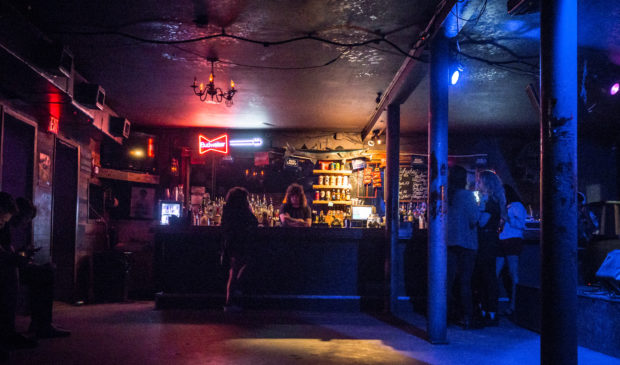Music, Downtown commissions explore options for preserving downtown venues
Tuesday, March 16, 2021 by
Chad Swiatecki With music venues and creative spaces becoming more endangered as real estate prices continue to climb, members of the Downtown Commission and Music Commission are looking to enlist other groups in an effort to include those spaces in new developments.
August Harris, chair of the Downtown Commission, spoke to the Music Commission at this month’s meeting and said his group wants to support any ideas brought forward to preserve and increase the number of music venues in the downtown core. Music Commissioner Doug Leveton was recently appointed as a complementary member of the Downtown Commission in a bid to increase collaboration between the two bodies.
Harris said the city’s renowned live music scene came about because of the growth of shopping malls in the ’70s and ’80s that pulled retail tenants out of downtown and opened attractive space up for lower-margin uses like bars and clubs. That dynamic has changed in recent years as the city has grown, with downtown property selling for $1,000 or more per square foot and making it too expensive to run a music space affordably.
Harris and the commissioners talked over the need to approach downtown developers – likely in concert with the Downtown Austin Alliance or other stakeholder groups – and push plans to include clubs or other creative uses within hotels and condominium projects. That strategy would have to be adjusted on a case-by-case basis, he said, because many development companies operate nationally and have established models and financial pro formas that might not perform as well if a music venue or creative space were included.
“Together with folks like Downtown Austin Alliance, we need – with developers – to find out if there’s a way to create and sustain a venue space, performance space or practice space that you need to keep your music industry vibrant,” he said. “I don’t know what it’s going to look like, but we’ve got to figure out some solutions.”
Harris said the string of historic buildings along Sixth Street that have property tax protections represent the most financially friendly properties in all of downtown to hold music venues. Looking out into the wider real estate landscape, he said the assorted commercial spaces once owned by World Class Capital Group that have gone into foreclosure could offer short-term solutions to be used as creative spaces.
Another potential opening for placing creative spaces downtown comes from the likelihood that office and commercial buildings are projected to have vacancy rates of 15 percent to 20 percent in the aftermath of the pandemic, due to the shift toward remote working. That change in work habits has caused companies nationwide to reduce their real estate footprints, which could have a sizable effect on the more than three-dozen tower projects planned for downtown in the coming years.
Commissioner Graham Reynolds said years of work by previous members of the Music Commission and other music industry leaders had failed to produce significant commitments from developers to incorporate creative spaces in their building projects. The now-stalled CodeNEXT process tried to provide some planning and building considerations for those uses, and even suggested the possibility of incentives for any project featuring creative space that could be classified as a community benefit.
“In our talks with developers through the years, I got no sense of any commitment and no encouraging feedback that if the numbers didn’t work they were committed to building a future of Austin’s downtown that had a vibrant music scene,” he said.
“Austin’s music scene was built on affordability plus the concentration of people between the university and government and the people who moved here who were interested in music. As downtown has increased dramatically in cost, small music venues that are the backbone of the Austin music scene and are very low-margin business become harder to maintain.”
Other ideas considered by commissioners included reaching out to Austin Tech Council and similar groups to propose that tech companies located downtown regularly host concerts in or around their offices and dedicate some of their marketing budgets to promoting local live music.
While no action was taken related to the discussion, the two commissions are exploring holding a joint meeting as soon as possible to further explore potential solutions.
The Austin Monitor’s work is made possible by donations from the community. Though our reporting covers donors from time to time, we are careful to keep business and editorial efforts separate while maintaining transparency. A complete list of donors is available here, and our code of ethics is explained here.
You're a community leader
And we’re honored you look to us for serious, in-depth news. You know a strong community needs local and dedicated watchdog reporting. We’re here for you and that won’t change. Now will you take the powerful next step and support our nonprofit news organization?






